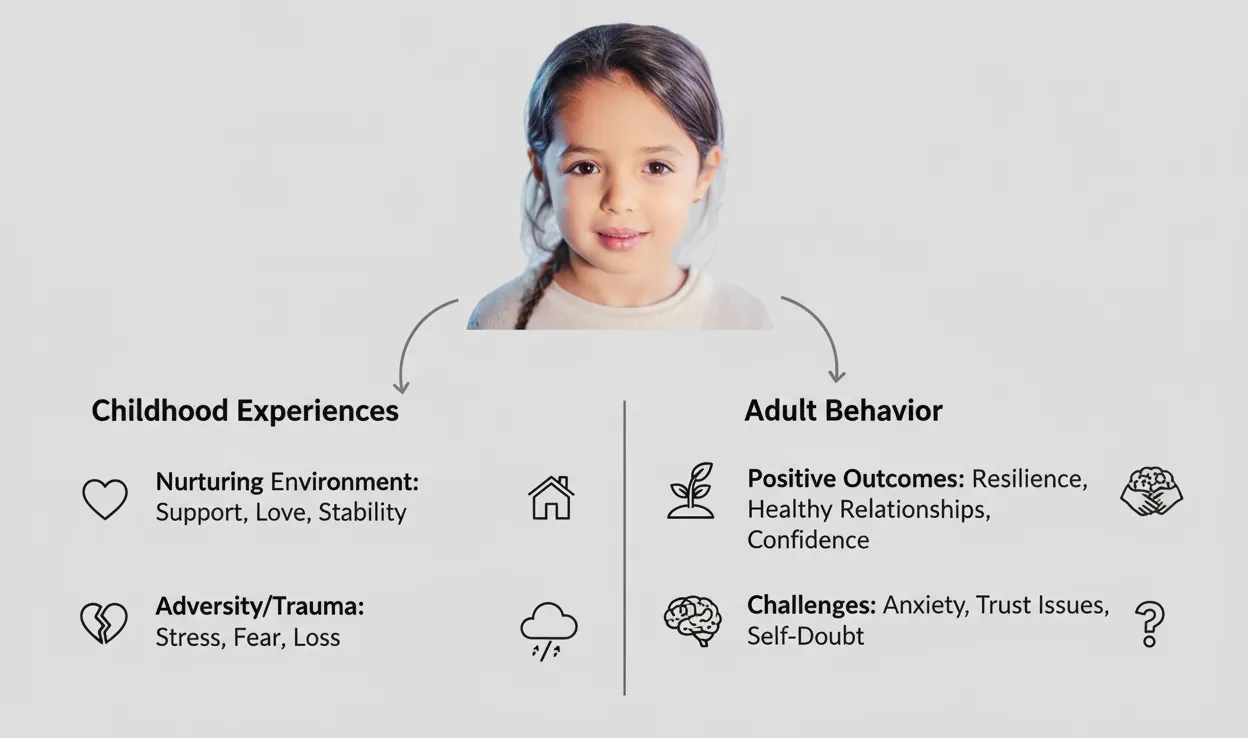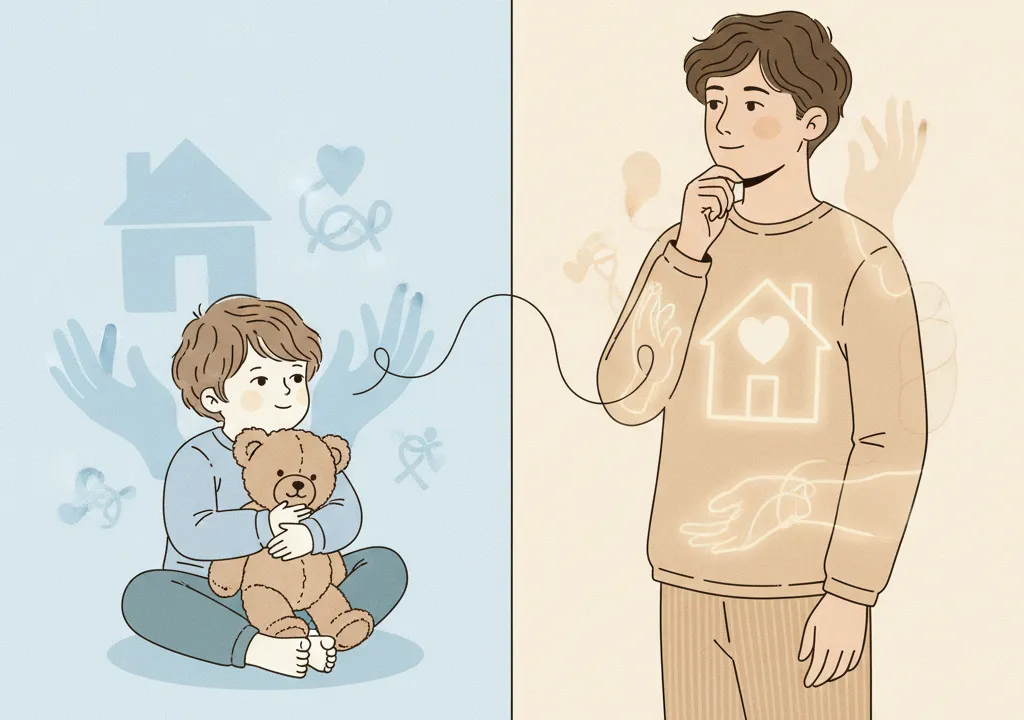Our childhood is the foundation of who we become as adults. The way we were treated, the love and attention we received, the lessons we learned, and even the challenges we faced — all of these experiences leave an imprint on our minds.
Some people grow up in nurturing homes and find it easier to trust, love, and build relationships later in life. Others grow up with criticism, neglect, or conflict, and may struggle with self-esteem, anxiety, or trust issues as adults.
The truth is: childhood experiences shape the lens through which we see the world. In this article, we’ll explore how these early years affect adult behavior and what you can do to heal from negative experiences.
Why Childhood Matters?
From birth until teenage years, our brain is like soft clay. Whatever we experience during this time — kindness or harshness, encouragement or humiliation — gets absorbed deeply. These experiences form our beliefs, habits, and emotional patterns.
That’s why two people can grow up in very different homes and end up behaving in very different ways as adults.
Positive Childhood Experiences:
When children grow up in supportive and loving environments, they usually carry those strengths into adulthood. For example:
Consistent love and attention → Builds self-confidence and emotional security.
Encouragement and praise → Help the child believe in their abilities.
Healthy discipline → Teaches responsibility and self-control.
Trust and safety at home → Leads to healthy relationships later in life.
Such adults often find it easier to handle stress, maintain healthy friendships, and set goals with confidence.
Negative Childhood Experiences:
Unfortunately, not all childhoods are smooth. Experiences like neglect, harsh punishment, or constant criticism can leave scars that show up in adulthood. Some common effects include:
1. Low Self-Esteem:
If a child constantly hears “you’re not good enough” or is compared with others, they may grow into adults who doubt their abilities, even when they are capable.
2. Difficulty Trusting Others:
Children who faced betrayal, neglect, or broken promises often to struggle with trust. As adults, they may find it hard to open up in relationships or may fear being abandoned.
3. Anger or Rebellion:
If a child grew up in a strict or humiliating environment, they may carry unresolved anger. As adults, this might show up as aggression, defiance, or frequent conflicts with authority.
4. Fear of Failure:
Children who were punished for mistakes instead of encouraged to learn may grow up fearing failure. They may avoid risks, stay in their comfort zone, or become perfectionists.
5. Anxiety and Depression:
Unstable or abusive childhoods can lead to emotional distress that lingers into adulthood. The body and mind get “wired” to stay on alert, leading to chronic anxiety or sadness.
The Role of Attachment:
Psychologists talk about attachment styles, which develop in childhood based on how caregivers treated us. These often carry into adulthood:
Secure Attachment → If parents were loving and consistent, adults usually feel safe in relationships.
Anxious Attachment → If love was unpredictable, adults may crave closeness but also fear rejection.
Avoidant Attachment → If emotions were ignored, adults may distance themselves and avoid intimacy.
Disorganized Attachment → If caregivers were abusive or frightening, adults may feel confused in relationships, craving love but fearing it.

Can Childhood Experiences Be Changed:
Here’s the good news: your past may shape you, but it doesn’t have to define you forever. The brain has the ability to heal and rewire through awareness and practice.
1. Self-Awareness:
Start by reflecting on your patterns. Do you struggle to trust people? Do you fear failure? Do you get angry easily? These are clues pointing back to old wounds.
2. Reframing the Past:
Instead of seeing childhood only through pain, you can reframe it. For example, “My strict parents taught me resilience, but now I choose to live with kindness.” This reframing gives you control.
3. Therapy and Counseling:
Talking to a therapist can help you process unresolved feelings, release past pain, and build healthier beliefs. Approaches like CBT, NLP reframing, or inner child work are especially powerful.
4. Building New Habits:
The best way to heal is to practice new behaviors. If you lacked trust, start by allowing small steps of vulnerability. If you were criticized, practice self-compassion and affirmations.
5. Healthy Relationships:
Surround yourself with people who uplift you, listen to you, and support you. Healthy relationships act as “corrective experiences” — teaching you that love and safety are possible.
A Simple Metaphor:
Think of childhood experiences as the roots of a tree. If the roots were watered with love, the tree grows strong and healthy. If the roots were neglected or poisoned, the tree may still grow, but it struggles with weak branches and fewer fruits.
But here’s the key: even if your roots were damaged, with proper care, sunlight, and nurturing, the tree can still heal and bloom again.
Final Thoughts:
Our childhood experiences are powerful — they shape how we think, feel, and behave as adults. But no matter what happened in the past, change is always possible.
If your childhood was nurturing, you can use that strength to keep growing.
If your childhood was painful, you can heal, reframe, and create a new story for yourself.
Remember: you are not your past. You are the author of your future.
If you find yourself struggling with patterns from childhood — whether it’s trust issues, fear, or low self esteem — know that help is available. Healing is not about erasing the past but about learning how to rise above it and reclaim your true self.


